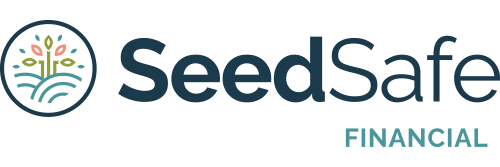
Self-employment is about purpose and flexibility. Being able to build deep purpose into your work and bring a new way of work into the world. It also means you can choose who to work with and the way you work with them.
If the goal is to live a purposeful life, doesn’t the journey mean as much as the destination?
Self-employment gives you that possibility beyond what a normal 9-to-5 can.
What are the top things to know when becoming self employed?
Know yourself.
Forbes put together a quick hit list of the 13 signs you are meant to be self-employed and I couldn’t agree more.
Flexibility and control in doing the right work day in and day out? That is freedom.
During this time of lay-offs in the tech space, it can also mean survival. Bringing cash in ASAP may be your goal. Some of us go into self-employment from a place of anxiety or scarcity.
So just like money, self-employment can be freeing or anxiety driven.
How should I approach finances when self-employed?
The main thing about self-employment is you now wear many hats. You didn’t get into this business to keep track of bookkeeping, invoicing clients, creating contracts, etc. Once you start to make more and more money, there is a whole extra slew of things to consider for minimizing taxes longer term.
The first step in self-employment is to decide how much you want to be able to make in income to support yourself and a fulfilling life. Ask:
- What is my short term income goal?
- What is my longer term income goal?
- How many hours a week will I work?
- How many days/weeks do I want to be out of the office each year?
- What should my product / services look like?
- How do others charge for those services? How much do they charge?
- Can the above questions align into a successful and sustainable business for me?
- How long is my current cash runway?
A key tip – we all end up charging too little for our first engagements 🙂 So feel free to charge a price higher than you think is reasonable.
Another note is that your income is taxed differently as a self-employed person. As a business, you are the employer + the employee and so more taxes from the employer side will show up in your tax return. Often, this means less ‘net’ income than working for the same pay rate. Here is a self-employment tax article explaining the implications.
Should I be a ‘sole proprietor’ or create an LLC?
This is a hot topic – does it make sense to create an LLC for my business? Well, it couldn’t hurt. A single owner LLC can still file their taxes like a sole proprietor and include the business income on their personal tax return.
An LLC is a flexible business entity that can grow with you as your income increases. Then, you determine how big to grow the business (a bigger team, international presence, etc)
Here is a great article from Wolters Kluwer on the pros and cons of an LLC and how to form one.
Each state is different in how they tax LLCs vs sole proprietors. For example, California has a Franchise tax with a minimum $800 fee annually. Build this into your income projections.
Beyond the LLC taxes, you have other reporting requirements. Reporting vendor payments (For 1099s), annual information reporting (Secretary of State filings), Sales and use tax, and Beneficial Ownership Information ‘BOI’ reporting. Get to know the rules for your LLC entity to make sure you stay in compliance.
If you don’t have an accountant or bookkeeper, now may be the time to find a good one!
What are the financial benefits of being self-employed?
This is one of my favorite topics as a financial planner! Oh, the opportunities 🙂
As a self-employed individual, you may be able to make a bigger retirement contribution.
Many professionals in the tech space have the opportunity of a 401(k) contribution, a good employer match, and sometimes an after-tax 401(k) to lean into. These are pretty wonderful retirement benefits to go up against.
If you make enough income to support yourself and have room for investments, there are many ways to put away more pre-tax dollars.
My personal favorite is a Solo 401(k). This may not be the right solution for all, so please speak with a professional about your specific situation.
A Solo 401(k) is like a 401(k), but for self-employed individuals. You get to be the employer and the employee. So you can match yourself! The calculation is a little more complicated than doing whatever you want. A good estimate may be to use AARPs self-employed 401(k) contribution calculator to visualize what this could mean for you.
Solo 401(k) value: a simple example
Let’s assume as an employee or a self-employed individual, your goal is to make $220,000 in income. This lets you enjoy your time, make enough money to cover your expenses, and continue to invest.
As an employee, you would be eligible for a 401(k) contribution up to $23,000 and receive an employer match. If you maxed out your contribution, and your employer match was 6%, you would put $24,380 towards retirement in a year.
As a self-employed individual, you would be eligible for the same 401(k) contribution of $23,000 and an employer contribution. With a Solo 401(k), that employer contribution could be up to $41,000 in this example. That means, in theory, you could put away almost $64,000 towards retirement a year!
Barring the fact you may need some of those funds, this is quite a pre-tax contribution. This may also reduce your taxes by a considerable amount. Depending on your situation, it may knock you down a tax bracket or two.
You will be able to continue making contributions as long as you do not have any part-time employees working over 2,000 hours a year for you. Once you bring on full time employees, the benefit of the Solo 401(k) is no longer available to you.
At that point, you will need to put in a company wide plan if you wish to continue making retirement contributions. There may be other deferred compensation plans available as well.
Even if you can only enact this strategy for a few years, a Solo 401(k) could be to your advantage.
If you work for an employer and do side consulting, the Solo 401(k) may not be the best option for you. Check with a professional on what is best for you.
Self-employment is a delicate balance
As I work with self-employed individuals, I find there is an incentive to work a little bit more to bring in a little bit more money …until you hit a burnout. Then, life tends to show us that a little more work isn’t worth the money.
I encourage you to decide on that balance ahead of time and stick with it. Check in with yourself on how you feel about your time worked in the business and time outside the business.
Remember, this business exists to support your life. If it isn’t making your life better, then why do it?
Self-employment requires a wide range of skill sets including sales, marketing, project management, etc. If you can get over this hurdle, you will control your work, have more flexibility in your time, and a happier work life.
I wish you the best in your self-employment journey!
P.S. For ongoing clients, we dive deep into the weeds of accounting setup, operations, and taxes. Setting your business up for success allows you to focus on the work you are meant to do 🙂
If you are interested in learning more, schedule some time to chat with us.
The above discussion is for informational purposes only. Recommendations are of a general nature, not based on knowledge of any individual’s specific needs or circumstances, and there is no intent to provide individual investment advisory, supervisory or management services.



